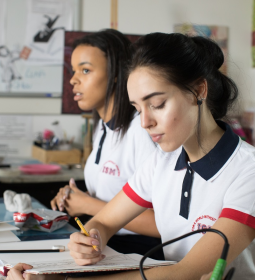Scotland is not a very prosperous region when it comes to weather. Here you have a changeable climate, and dampness, and dependence on the temperature of the largest polar current Gulf Stream, and the peculiarities of the geographical location and even the landscape (try to live on bare rocks).
Therefore, the Scots take the issues of global climate change very seriously. The local parliament is even proposing to introduce special lessons on climate change issues into the national educational program. If so, such a measure is unlikely to find opponents: 85% of Scots take the issue of climate change very seriously, and issues concerning sustainable development, recycling and reducing carbon emissions play an important role in the programs of all Scottish political parties without exception. Even the Conservatives and Eurosceptics of Farij's party, who are inclined to be suspicious of the green agenda at the national level, participate in green debates in Scotland, promising to reduce their carbon emissions and print their posters and leaflets exclusively on recycled paper.

The authorities expect that by 2045 Scotland will become carbon neutral, and many schools and universities promise to reach zero emissions by 2040 - five years earlier.
Climate lessons in private schools began to appear here one and a half to two decades ago, and now it is the turn of public education. Moreover, it cannot be said that deputies and officials made a decision without consulting anyone! On the contrary, they treated the task as carefully as possible. A special council of 23 participants was formed for public discussion, in parallel, a series of sociological surveys were launched, based on the data of which the elected advisers were to prepare their recommendations on how to deal with the climate.

Before declaring anything, the People's Council met for almost 4 months. The result was an 18-point document. The first was the introduction of a discipline called "Climate Change" in schools. The advisers believe that all students without exception should get a basic idea of what dramatic changes occur to nature as a result of anthropogenic impact, of green energy and special professions that provide the smallest increase in carbon emissions, of what "green", environmentally friendly answers to all these challenges exist.
At the same time, children themselves should participate in the development of the curriculum. So, according to advisers and parliamentarians, the program can be made interesting, popular and in demand, and the information can be understood not only by children, but also by their families.
It is worth mentioning that the Scots were not the first to propose teaching in schools "nature and the weather issues". Back in 2020, lessons on climate change were introduced in Italian schools: 33 hours a year were devoted to a special subject, and the values and guidelines of environmentalism and sustainable development were added to the curriculum in other disciplines, such as mathematics, science and technology.
However, everything is clear with the Italians: the current Minister of Education of the country publicly expressed support for schoolchildren who missed classes because they went to protests against climate change, promised new taxes for plastic and sugar-containing drinks. But until recently, no one could even imagine that the Poles would take care of climate issues! The Poles, by the way, were forced by need, or rather, by the catastrophic flood that swept through southern Poland and the countries of the Visegrad Group in September this year.









